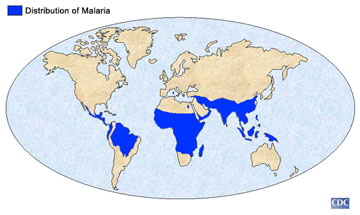Global warming may worsen infectious disease
Global warming may worsen infectious disease
mongabay.com
May 22, 2007
Outbreaks of infectious disease will likely worsen due to global warming, warn scientists at the 107th General Meeting of the American Society for Microbiology in Toronto.
“Environmental changes have always been associated with the appearance of new diseases or the arrival of old diseases in new places. With more changes, we can expect more surprises,” said Stephen Morse of Columbia University.
“Diseases carried by insects and ticks are likely to be affected by environmental changes because these creatures are themselves very sensitive to vegetation type, temperature, humidity etc. However, the direction of change — whether the diseases will increase or decrease — is much more difficult to predict, because disease transmission involves many factors, some of which will increase and some decrease with environmental change. A combination of historical disease records and present-day ground-based surveillance, remotely sensed (satellite) and other data, and good predictive models is needed to describe the past, explain the present and predict the future of vector-borne infectious diseases,” added David Rogers of Oxford University.
 GLOBAL DISTRIBUTION OF MALARIA. IMAGE COURTESY OF THE CDC. Malaria kills an estimated 700,000-2.7 million people each year, 75% of them African children. In 2002, malaria was the fourth cause of death in children in developing countries, causing 10.7% of all children’s deaths. Malaria linked to Amazon deforestation |